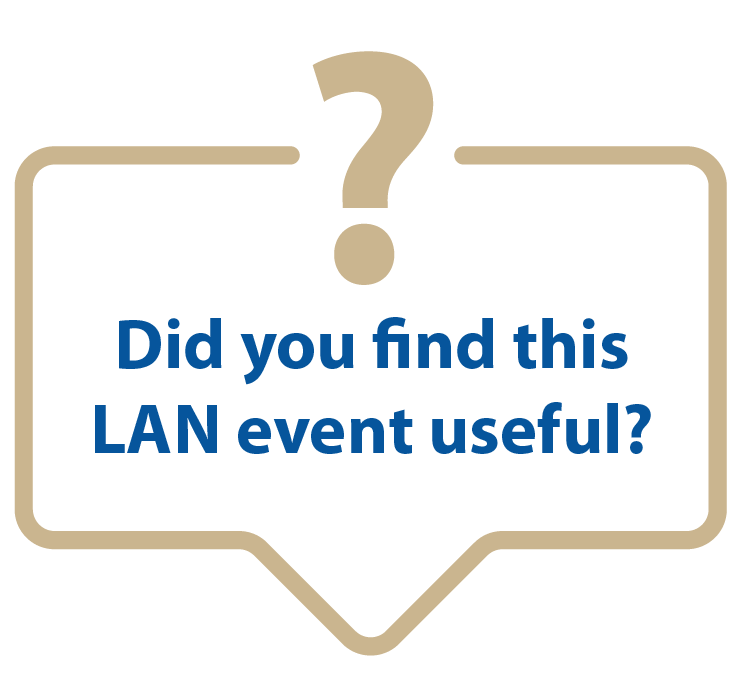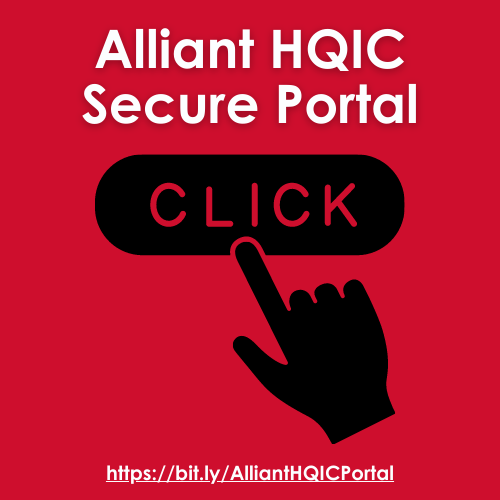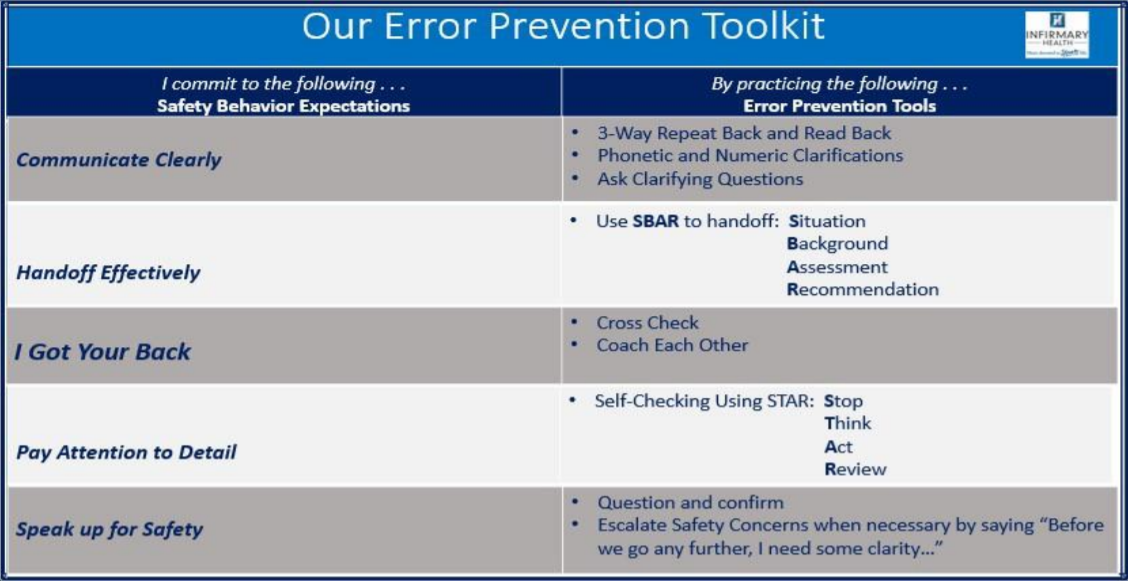|
|
|
|
This monthly newsletter highlights the latest insights, resources, and evidence-based best practices.
Our hope is that this newsletter makes it easy for you to stay on top of trends and allows you to provide the best possible care for those you work with and serve.
|
|
|

Biden-Harris Administration and CMS Issues Emergency Regulation Requiring COVID-19 Vaccination for Health Care Workers
The Biden-Harris Administration requires COVID-19 vaccination of eligible staff at health care facilities that participate in the Medicare and Medicaid programs. Facilities covered by this regulation must establish a policy ensuring all eligible staff has received the first dose of a two-dose COVID-19 vaccine or a one-dose COVID-19 vaccine prior to providing any care, treatment or other services by December 5, 2021. All eligible staff must have received the necessary shots to be fully vaccinated—either two doses of Pfizer or Moderna or one dose of Johnson & Johnson—by January 4, 2022. Read the Article
|
Past Learning and Action Network (LAN) Events
One Hospital’s Journey to a Culture of Health Equity: Lessons Learned from a Rural Community
Recorded on November 23
Participants learned about the population health initiatives at Jefferson Healthcare, a rural health system located in Port Townsend, Washington. In 2020, a robust health equity initiative was started that strategically overlapped with hospital operations and focused on the quality and patient safety program. The session presented an overview of Jefferson Healthcare’s culture of equity journey, explained how data was used to drive decision-making for performance improvement, and highlighted tools and resources to enhance health equity.
View Recording | View Slides
View All Upcoming Events Here

If Yes, Click Below.
Click here if you attended the November LAN event and were able to "use tomorrow" what you heard during the webinar.
View All Previous LAN Event Recordings
Upcoming Partner Events
National Healthcare Safety Network (NHSN) Training Opportunity
Tuesday, December 14 at 1 p.m. MT | 2 p.m. CT | 3 p.m. ET (60 min.)
Join the Telligen HQIC for a National Healthcare Safety Network (NHSN) training. Telligen will host representatives from the CDC who will provide step-by-step instruction and tips for the following topics:
- Review of the Annual Facility Survey
- Creation of monthly reporting plans
- Entering events into the NHSN application
- Frequently asked questions, troubleshooting and common reporting pitfalls to avoid
If you’ve been hesitant to begin reporting patient safety events in NHSN, attend this session to learn how the NHSN application can support the quality work you are doing in your facility. New and experienced NHSN users can benefit from this training. A Q&A session will follow the presentation. Now is the time to get your questions answered! Register Here
Community of Practice (COP) Calls
A series hosted by CMS on the second Thursday of each month at 1 p.m. ET/12 p.m. CT/11 a.m. MT/10 am. PT
Creating a Hospital Community's Social Needs Profile
Thursday, December 9
Audience: This monthly call series is open to all Hospital Quality Improvement Contractors (HQIC). HQICs may extend this invitation to their hospitals to attend as well.
Purpose: Health and quality of care are essential. By incorporating details from publicly available data and a few other tools into this valuable assessment, the development of a profile provides a targeted way to meet the most critical social needs and improve outcomes. Links to specific quality measures with the social needs profile will be discussed, in addition to the benefits of collaboration among facilities with overlapping communities to reduce disparities.
Register Now
Past COP Calls
Reducing Readmissions: Successful Rural Hospital Strategies
Recorded on November 18
This CoP call featured Alliant HQIC hospitals North Baldwin Infirmary (Ala.), Marshall Medical Centers (Ala.) and Coffee Regional Medical Center (Ga.), and was well-received. There were 180 attendees for the live event. View the Slides and Recording
Comments included:
Comments from Shelly (CMS facilitator):
Wonderful speakers.
Best engagement from attendees we have had in several months.
I found the presentation to be very inspiring as a nurse.
Comments from the presenters:
We appreciate the opportunity to present and learn.
Thanks for the opportunity to share our successes from our small rural hospital.
Comments from participants:
This was excellent... Great work everyone.
This was an awesome presentation!
Thanks - VERY helpful!!!
Great speakers and awesome information. Thanks for sharing.
Good speakers. Thank you.
Upcoming COP Calls—Save the Date
• Jan. 13, 2022
• Feb. 10, 2022
• March 10, 2022
• April 14, 2022
• May 12, 2022
Patient Safety Network Series
Alliant Health Solutions and our HQIC Partners are continuing the Patient Safety Network series through January 2022. These 30-minute sessions provide resources to support improvement in the specific areas listed below. Register for the session(s) in which your hospital needs assistance. Subject matter experts and quality improvement advisors offer guidance, resources and tools that allow participants to identify and develop action plans to address gaps and drive improvement. In addition, participants can ask questions and share experiences with HQIC improvement staff and peers from other HQIC hospitals. Please register for the session(s) in which your hospital needs assistance.
Adverse Drug Event Opioids and Opioid Stewardship
Thursday, December 9 at 11:30 a.m. ET | 10:30 a.m. CT
Presenters: Jennifer Massey and Lynne Hall
Register Here
The ADE Opioids and Opioid Stewardship sessions is held the 2nd Thursday of the month.
IP (C. diff/MRSA, CLABSI, CAUTI)
Thursday, December 9 at 12 p.m. ET | 11 a.m. CT
Presenters: Amy Ward and Rhonda Bowen
Register Here
The IP (C. diff/MRSA, CLABSI, CAUTI) sessions is held the 2nd Thursday of the month.
Sepsis and Septic Shock
Wednesday, December 15 at 12 p.m. ET | 11 a.m. CT
Presenters: Amy Ward and Rhonda Bowen
Register Here
The Sepsis and Septic Shock sessions is held the 3rd Wednesday of the month.
Pressure Injuries
Wednesday, December 15 at 12 p.m. ET | 11 a.m. CT
Presenters: Sarah Phillips and Tracy Rutland
Register Here
The Pressure Injuries sessions is held the 4th Wednesday of the month.
Anticoagulants and Glycemic Adverse Drug Events
Tuesday, December 28 at 12:30 p.m. ET | 11:30 a.m. CT
Presenters: Jennifer Massey and Carol Snowden
Register Here
The Anticoagulants and Glycemic ADE sessions is held the 4th Tuesday of the month.
Readmissions
Wednesday, January 5 at 2 p.m. ET | 1 p.m. CT
Presenters: Mel Brown and Sarah Good
Register Here
The Readmission sessions is held the 1st Wednesday of the month.
COVID Office Hours - IP Chat
Ongoing
Alliant hosts weekly COVID Office Hours–IP Chat for Infection Preventionists and other healthcare providers to discuss the challenges and solutions of COVID patients in hospitals. The Office Hours–IP Chat is led by Alliant’s Infection Prevention Specialist Amy Ward, MS, BSN, RN, CIC, who facilitates the open discussion and answer any questions. Questions? Email Amy Ward at amy.ward@allianthealth.org. Click Here for the Schedule and to Join a COVID Office Hours-IP Chat.
|
 Alliant HQIC Online Portal Alliant HQIC Online Portal
Access the Alliant HQIC portal to view your assessments and measurement data, and chat with other HQIC-enrolled hospitals to share best practices, barriers and solutions. Download Portal Instructions to Get Started
Behavioral Health/Opioid Stewardship
Six Building Blocks Toolkit Helps Clinics Improve Opioid Prescribing
An Agency for Healthcare Research and Quality (AHRQ)-funded resource, “Six Building Blocks: A Team-Based Approach to Improving Opioid Management in Primary Care How-To-Implement Toolkit,” can help primary care teams reduce the number of patients on long-term opioid therapy for chronic pain. The evidence-based toolkit offers a quality improvement roadmap for redesigning patient care without practice facilitators or other external support. It helps clinical staff develop standardized workflows, track key measures and use electronic health record tools and registries. Get the Resource
Pain Assessment and Management Initiative (PAMI) at UF College of Medicine-Jacksonville
The overall goal of PAMI is the advancement of multimodal, safe pain management in health care systems to improve outcomes and reduce opioid risk. Multimodal management includes a variety of pharmacologic and non-pharmacologic interventions to address opioid stewardship, discharge planning and safe pain management. Visit the PAMI website for educational materials on safe pain management practices for clinicians and patients and access to all PAMI products. Materials are freely available to download and reproduce for educational and reference purposes. Educational materials include:
- Pain Management and Dosing Guide
- Discharge Planning Toolkit for Pain
- Patient Educational Videos
- Non-pharmacologic & Distraction Toolkit/Toolbox
- Communication cards in Spanish and Creole with pain terms
Visit the PAMI Website
Patient Safety
Adverse Drug Events
Medications at Transitions and Clinical Handoffs (MATCH) Toolkit for Medication Reconciliation
This toolkit incorporates the experiences and lessons learned by health care facilities that have implemented MATCH strategies to improve their medication reconciliation processes. Get the Toolkit
Healthcare-Associated Infections
Sepsis Opportunities: Lessons from the COVID-19 Pandemic
The ongoing COVID-19 pandemic caused hundreds of millions of infections, millions of deaths and disrupted daily life worldwide. We rapidly learned about the pathogenesis, prevention and treatment of this disease. Severe COVID-19 is characterized by the body’s extreme reaction to the infection, which means it could be considered a form of sepsis requiring specific interventions and typical sepsis supportive care. Many hospitalized COVID-19 patients are diagnosed with sepsis. We can draw several lessons from global efforts to track and mitigate the impact of COVID-19, or SARS-Cov-2 infection. Read More
Antibiotic Stewardship
Carbapenem-Resistant Enterobacteriaceae (CRE) Control and Prevention Toolkit
Leaders in infectious disease and infection control, as well as those concerned with patient safety and performance improvement, can use this toolkit to develop interventions to control carbapenem-resistant Enterobacteriaceae (CRE). Read More
Remember These Eight Facts to Continue Being Antibiotics Aware
- Antibiotics can save lives. They are critical tools for treating life-threatening conditions, such as pneumonia and sepsis. When a patient needs antibiotics, the benefits outweigh the risks of side effects or antibiotic resistance.
- Antibiotics aren’t always the answer. Talk with your healthcare provider or veterinarian about the best treatment when you, your family or an animal is sick.
- Antibiotics are only needed to treat infections caused by bacteria, but even some bacterial infections get better without antibiotics, including many sinus infections and some ear infections.
- Antibiotics do not work on viruses, such as those that cause colds, flu or COVID-19. Respiratory viruses usually go away in a week or two without treatment. Ask your healthcare professional about the best way to feel better while your body fights off the virus.
- Take antibiotics exactly as prescribed. Do not use antibiotics that aren’t prescribed for you by your healthcare professional. Talk with your healthcare professional if you have any questions about your antibiotics or develop any side effects. Diarrhea can be a symptom of Clostridioides difficile infection (also called C. difficile or C. diff), which needs to be treated.
- If you have animals, talk with your veterinarian about using antibiotics responsibly to keep people and pets healthy. Don’t use antibiotics that aren’t prescribed by your veterinarian.
- Store antibiotics safely in your home so that children and pets do not accidentally take medicine not meant for them.
- Dispose of antibiotics properly. Do not flush them. Medicine take-back programs are a good way to dispose of most types of unneeded or expired drugs safely. Experts are working to better understand antibiotic resistance in the environment (e.g., water, soil) and its possible impact on people.
Pressure Injuries
COVID-19 Resources for Pressure Injury Prevention
The National Pressure Injury Advisory Panel (NPIAP) is an independent nonprofit professional organization dedicated to the prevention and management of pressure injuries. Click Here to read their paper "Unavoidable Pressure Injury during COVID-19 Pandemic: A Position Paper from the NPAIP."
Pressure Injuries and COVID-19
Access resources from NPIAP on COVID-19 and the effect it is having on health care providers and patients. NPIAP compiled a list of COVID-19 related resources for pressure injury protection and offers free materials to help identify pressure injuries and how to prevent them. Access Resources
Patient and Family Engagement
Restarting and Energizing PFACs–Easy to Implement How-To-Lists
The Consumers for Advancing Patient Safety (CAPS) is an organization that envisions a partnership between consumers and providers to create global healthcare systems that are safe, compassionate and just. Join the Zoom series for Restarting and Energizing PFACs–Easy to Implement How-To-Lists hosted by CAPS and Healthcare and the Patient Partnership Institute (H2Pi). Click Here for the Meeting Facilitation How-To-List
Next Zoom Webinar: Celebrating/Recognizing and Honoring PFAC Members
Dec. 14, 2021 at 4 p.m. ET | 3 p.m. CT
Register Here
Health Equity
New TJC Sentinel Event Alert Addresses Health Disparities
The Joint Commission considers addressing health care disparities as “a quality and patient safety imperative, as well as a moral and ethical duty.” The latest TJC Sentinel Event Alert provides strategies and successful initiatives for hospitals as they begin addressing disparities and hardwiring health equity into their hospital performance improvement and patient safety programs. Read the Event Alert
Achieving Health Equity
Are your NQIIC communities re-examining their health equity initiatives? This two-hour online course from the CMS Medicare Learning Network presents education on identifying and eliminating health disparities in organizations. Health equity improves the quality of health care for the individuals and families in NQIIC communities and aligns your stakeholders’ efforts with CMS strategic goals. Take the Course
Readmissions/Care Transitions
Readmissions Among Sepsis Survivors: Risk Factors and Prevention
Sepsis readmission rates range from 18–26% across clinical settings, including community hospitals and large, academic tertiary care centers. Several patient demographics have been associated with readmission among sepsis survivors, including Black and Native American race, lower-income and Medicare or Medicaid beneficiary status. Limited access to health care, which can impact readmission rates through poor comorbidity management or inadequate follow-up after discharge, is commonly associated with this population. Improved outpatient comorbidity management could have a significant impact on sepsis readmission rates. Read the Study
Alliant Zone Tools Available
Did you know there are Zone Tools available on Aliant’s website? Alliant's Zone Tools are a great resource for quality improvement projects. Click Here to download, print and use the Zone Tools for free.
|
COVID-19 Care
New COVID-Related Videos Encourage Vaccination and Practicing Self-Care
Alliant recently shared two new COVID-related educational videos on its website. The “What is Your Choice?” video encourages people to choose immunization for COVID-19, and the “How to Prioritize Self-Care” video offers helpful techniques to begin prioritizing self-care. Watch them here: What Is Your Choice Video | How to Prioritize Self-Care Video
Using the Comprehensive Hospital Pandemic Preparedness Checklist for COVID-19
The CDC Comprehensive Hospital Pandemic Preparedness Checklist can help position hospitals to be prepared to identify and treat cases of COVID-19, including a potential surge in cases, and how to prevent the spread of disease in their facility. Using the Comprehensive Hospital Pandemic Preparedness Checklist for COVID-19 is one of four modules available to hospitals as a part of the Standards, Approaches and Tactics for Infection Control & Prevention (StAT) Learning Series for hospital clinical staff and leaders. Visit www.QIOProgram.org to learn more.
COVID-19 Vaccine Resources
|
Success Stories
Alabama Hospital's Commitment to Patient Safety Culture Proves Successful
The North Baldwin Infirmary, a 78-bed community hospital located in Bay Minette, Ala., is committed to patient safety and a healthy culture. Their high-reliability program consists of:
- Error prevention toolkit (see graphic)

- Hospital huddles
- Unit-based daily huddles
- Patient safety coaches
- Rounding to influence safety behaviors
- Serious safety event committee
- Serious safety event graphs
- Root cause analysis
- Safety LINKS
- Recognition program
Since 2017, North Baldwin Infirmary has had an average of 220 “great catches” a year and currently has 26 Patient Safety Coaches. In addition, the employee recognition program includes 26 Life Guard Awards and 17 Safety Hero Awards.
The hospital-wide patient safety culture has improved outcomes and maintained a zero rate with CLABSI since 2017 and CAUTI since January 2019. Due to increasing readmission rates and admissions from the Emergency Department, the team created a track board indicator as an internal tracking system for tracking and trending readmitted patients. View the Presentation
|
Hospital Heroes
South Georgia Medical Center’s Pet Therapy Program Makes Paws-itive Impact on Patients and Staff
South Georgia Medical Center (SGMC) has a new employee—a certified therapy dog named Rielle. She’s only had the job for a few months, but she’s already making a difference at the hospital by brightening the mood. Read the Article
Phoebe Will Be Represented On 2022 Donate Life Rose Parade Float
Phoebe Putney Memorial Hospital (PPMH) in Albany, Ga., is partnering with LifeLink of Georgia to honor and remember those who gave the gift of life through organ and tissue donation. On January 1, 2022, the Donate Life Rose Parade float titled “Courage of Hope,” will include a dedication garden made up of roses with handwritten dedications by hospital CEOs across the country, including PPMH CEO Joe Austin, alongside dedications celebrating transplant recipients and living donors, honoring deceased donors and thanking individuals and groups who support and take part in the donation and transplantation community. Read the Article
|
|
|
Connect with us!
    Click here if you'd like to share your corporate profiles with us and we'll connect with you!
Click here if you'd like to share your corporate profiles with us and we'll connect with you!
|
| |
Hospital Quality Improvement Project Collaborators


|
| |
|
Copyright © 2021, All rights reserved.
Our mailing address is:
Alliant Health Solutions
1455 Lincoln Pkwy
Suite 800
Atlanta, GA 30346
|
For more information about Alliant Health Solutions, visit the website: www.allianthealth.org
For questions or information about free technical assistance, please contact:
Share this email with a friend or colleague:  
|
|
|
|
|